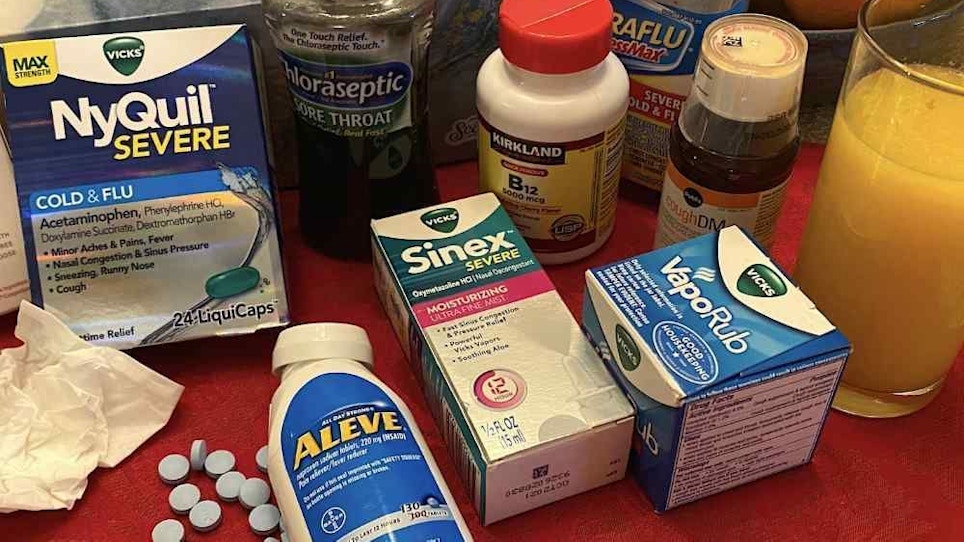The coronavirus outbreak is dominating world news amid the annual winter flu season, which leads to a fair question about whether employers should provide paid sick days for employees.
The coronavirus, officially known as Covid-19, has been detected in numerous countries including the United States. The Centers for Disease Control and Prevention offers tips on how it spreads, symptoms and other pertinent information.
More common each year is the flu, which the CDC estimates has affected up to 45 million people since 2010. It's difficult to pinpoint exact numbers, of course, but the flu "season" in autumn and winter is nothing to sneeze at. Add the common cold, seasonal allergies and other diseases or afflictions people have, and there's a wide range of things that could qualify as being sick.
Offering paid sick days isn't a federal requirement. For many years it has been a nice benefit for employees, along with others such as company insurance plans, 401k contributions or flexible working hours.
Determining What Sick Means
Whether you have five or 50 employees, one thing to determine is what you — the owner, supervisor, decider for your business — qualifies as "being sick" if you offer paid leave.
This can be tricky. There is no rulebook, guidebook, "Being Sick for Dummies" guidelines or anything like that to help. What might put an employee in bed for a day or two could be something you or someone else works through with some asprin or medicine.
I've seen co-workers with severe, non-infectuous reactions to allergies who were absolutely miserable. Yet they believed they "had to work" even when our company offered generous time off for illness. I've seen others who were probably an incubus of viral plague, as Miranda Priestly so aptly described it in "The Devil Wears Prada." (Note: Don't be a boss like Miranda.)
I've also worked with people who took a paid sick day with "spring fever" because they knew they could. Some today call that a "mental health day" and argue, in some cases, it should be a paid day. I'd think most employers would call that "a vacation day" or unpaid time off. Possibly abuse of the systems in place, too. That's something you, the employer, would have to decide.
Going with your instincts might be your biggest asset, but you probably should have some guidelines in place. It's sad that in today's world, some employees would argue "That wasn't spelled out in the company policy" or "No one told me I couldn't do that" when common sense should prevail. Unfortuantely, having to spell out each little thing or require a doctor's note like in grade school is all too common.
Social media may not be on your radar but it also could yield information about your employees. A friend of mine is a director for an international software company with direct reports of various ages. A couple of years ago several of them requested time off due to "illness" a day after their social media outlets were blown up with posts from a big nighttime city festival. Would hangovers qualify in your book as a "sick day?" Another requested time off under the company's illness policy because of a need to take a pet to the veternarian. That one was denied, despite protests.
Setting guidelines and enforcing them is a must. Creating a good, trusting, comfortable workplace in which employees return that trust and don't abuse it goes a long way to avoiding bad situations.
How Paid Sick Days Pay Off
It's common to think with a paid sick leave policy you'd see employees abusing it. Don't forget the party hangover or spring fever examples. Those may be ouliers but they happen.
However, setting up paid sick leave separate from vacation can be a big benefit for you and them.
It Reduces Absences: If your employees know they have x-number of paid sick days for legitimate illnesses, as spelled out by you or your company policy, they should see that as a benefit and part of your trust. Abusing it would result in some kind of penalty, such as a write-up in the personnel file.
Better Production: Would you rather have a sick employee working half-speed and getting less work done, or someone who takes off a day or two to get better and come back fresher? I know what I'd want. If an employee is legitimately sick they'll be more likely to judiciously use a paid day or two instead of coming to work "to power on through!" and possibly infecting others. If someone is sick at work, too, you risk them infecting other employees — and your customers. Who wants that?
Workplace Culture: A lot of companies like to say they "have a family atmosphere," which is nice. That signifies a level of trust, compassion, ability to hopefully discuss and work out differences in a civil manner, and a comfortable place in which to work.
No doubt at some time or another we've all worked in a place that is not like that. At best it might have been a dysfunctional family and at worst, a nightmare. It wasn't enjoyable, the boss or management structure was overbearing or micro-managing, favorites were played among employees, or other issues that contributed to you probably seeking an exit.
Offering paid sick leave, if you can financially afford it, along with other benefits — paid or unpaid — can help create a better workplace culture. Successful businesses large and small have these, as do sports programs. Look at the Alabama, Ohio State and Clemson football programs, for example, or the Tampa Bay Lightning of the NHL. Creating a winning team involves having a winning, productive, structured culture with everyone on the same page.






